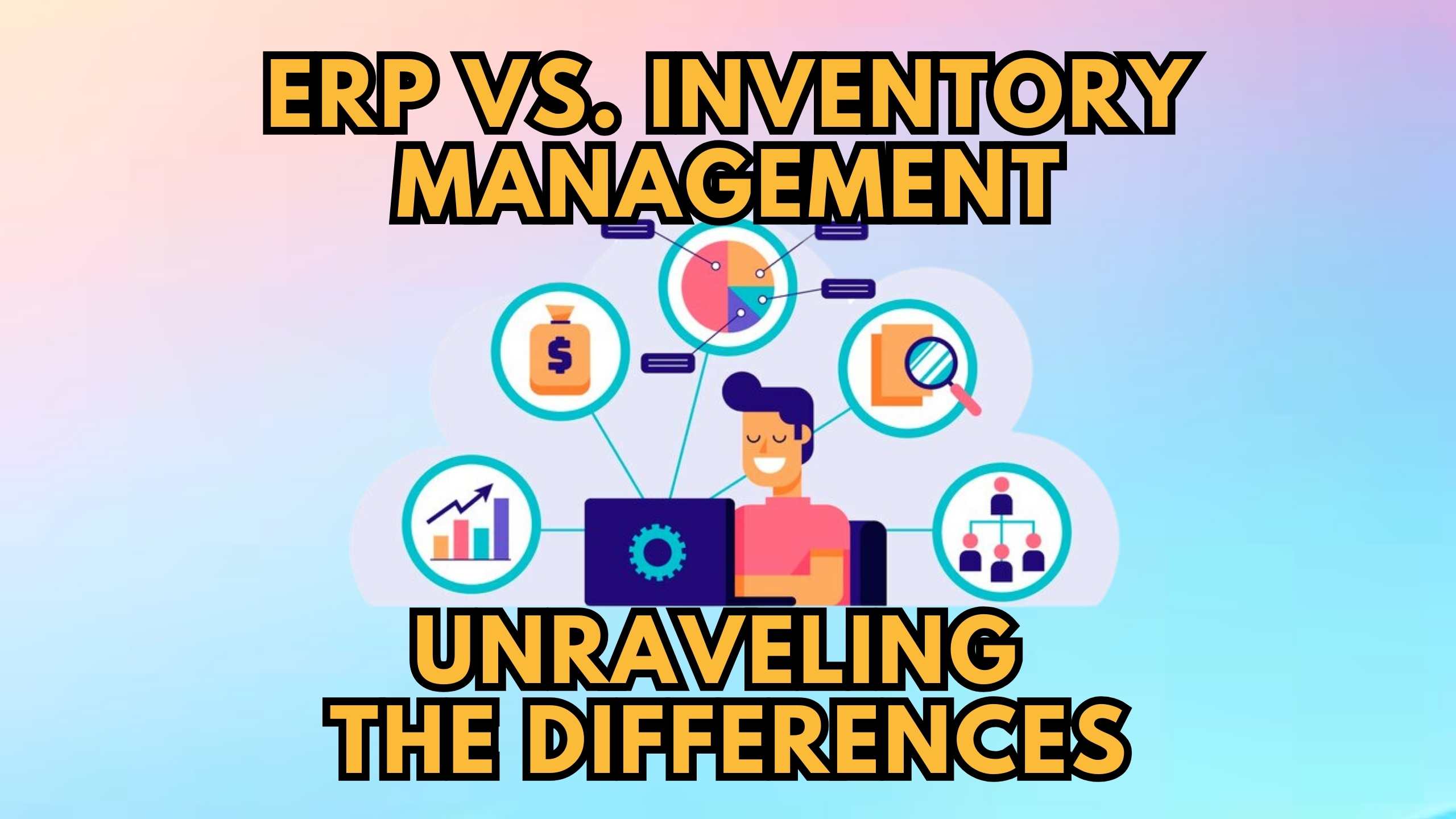ERP vs. Inventory Management: Unraveling the Differences
- Expense Management Software Credit Cards Investing Business Solutions


ERP vs. Inventory Management: Unraveling the Differences
In the expansive landscape of business operations, it is essential to navigate the distinctions between Enterprise Resource Planning (ERP) and Inventory Management to make informed decisions about software solutions. This comprehensive guide aims to provide a detailed exploration of ERP and Inventory Management, unraveling their differences, functionalities, and unique contributions to organizational efficiency.
Understanding ERP (Enterprise Resource Planning)
What ERP Encompasses:
Enterprise Resource Planning (ERP) is not merely a software system but a comprehensive strategy that integrates various business processes. These processes can range from finance, human resources, and procurement to manufacturing and supply chain management. ERP systems serve as a centralized hub, fostering seamless communication, data sharing, and collaboration across different departments.
Why ERP is Essential:
The significance of ERP lies in its capacity to offer a holistic and real-time view of an organization’s operations. By consolidating data and processes, ERP enhances accuracy in decision-making, reduces data silos, and promotes organizational transparency. It serves as a strategic tool for businesses looking to optimize resource allocation and operational efficiency.
ERP Components:
ERP typically comprises modules such as financial management, human capital management, supply chain management, and customer relationship management. These modules work cohesively, providing an integrated approach to business processes.
Unveiling Inventory Management
The Scope of Inventory Management:
Inventory Management is a specific subset of ERP, focusing on the efficient oversight of an organization’s goods and materials. This involves the strategic handling of ordering, storing, and utilizing inventory to meet customer demand while minimizing holding costs. Inventory Management plays a pivotal role in maintaining an optimal balance between supply and demand.
The Significance of Inventory Management:
Efficient Inventory Management is vital for ensuring that products are available when needed, avoiding stockouts or overstock scenarios. It directly impacts cash flow by minimizing carrying costs and contributes to customer satisfaction by ensuring a consistent supply of products. The strategic optimization of inventory levels is a core objective of Inventory Management.
Inventory Management Features:
Inventory Management software typically includes features like demand forecasting, order management, stock tracking, and reporting tools. These features empower businesses to make informed decisions regarding inventory levels and order fulfillment.
Is ERP the Same as Inventory Management?
While Inventory Management is a critical component of ERP, it is important to acknowledge that ERP goes beyond Inventory Management. ERP integrates various modules, including Inventory Management, to create a unified platform that addresses all aspects of an organization’s operations. While both are interconnected, they serve distinct functions within the broader context of business management.
Relevant SaaS Products for ERP and Inventory Management
- SAP S/4HANA: SAP S/4HANA is a versatile ERP solution known for seamlessly integrating Inventory Management. With real-time analytics and automation, it offers a robust platform for comprehensive resource planning.
- Oracle NetSuite: Oracle NetSuite is a cloud-based ERP solution with dedicated modules for Inventory Management. Its scalability and flexibility make it an ideal choice for businesses of various sizes.
- Zoho Inventory: Zoho Inventory is a specialized tool focusing on efficient Inventory Management. Its user-friendly interface and comprehensive features cater to the needs of small and medium-sized enterprises.
- QuickBooks Commerce: QuickBooks Commerce is a SaaS solution designed for precise Inventory Management. Its features include order management, stock tracking, and multi-channel selling capabilities.
- Infor CloudSuite: Infor CloudSuite is an ERP solution with dedicated modules for Inventory Management. It provides industry-specific solutions, ensuring enhanced operational efficiency for businesses.
Conclusion
In conclusion, understanding the nuances between ERP and Inventory Management is crucial for businesses seeking optimal software solutions. While ERP offers a holistic approach to resource planning, Inventory Management focuses specifically on the strategic handling of goods. Both play integral roles in driving organizational efficiency and success.
Streamline Your Business Processes with Subscribed.fyi
Ready to optimize your business operations? Subscribed.fyi is your all-in-one solution for understanding, comparing, and managing your SaaS stack. Sign up today to unlock exclusive deals on 100+ SaaS tools, providing savings exceeding $100,000 per year. Effortlessly manage all subscriptions in one place, gaining control of your expenses like never before. Unlock Your Savings with Subscribed.fyi!
Relevant Links:








